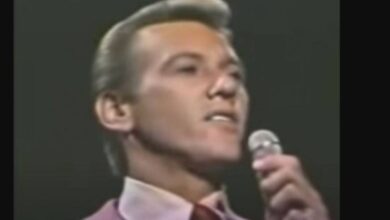The Kinks’ ‘I’m Not Like Everybody Else’ Becomes a Cult Anthem of Defiance and Individuality
Released in 1966 as the B-side to Sunny Afternoon, I’m Not Like Everybody Else by The Kinks was not an immediate hit, but over time, it became one of the most revered songs in the band’s catalog. Unlike the chart-topping success of its A-side counterpart, this track found a deeper connection with listeners who related to its rebellious spirit and raw honesty. While many of The Kinks’ biggest songs showcased their knack for sharp social commentary and melodic craftsmanship, I’m Not Like Everybody Else stood out as a powerful declaration of individuality and nonconformity, resonating across decades and becoming a cult favorite.
The Kinks, formed in 1963 by brothers Ray and Dave Davies in North London, were already known for their distinctive mix of hard-edged rock and introspective lyricism. Rising to fame with hits like You Really Got Me and All Day and All of the Night, they became pioneers of the British Invasion. However, unlike many of their contemporaries, The Kinks often explored themes of alienation, British identity, and social class with a keen observational eye. Their music was not just about youth and rebellion—it was about questioning norms and defying expectations, making I’m Not Like Everybody Else a natural fit within their body of work.
The song was originally written by Ray Davies with the intention of being given to another band, The Animals, but instead, it stayed within The Kinks’ camp. Though Ray was the band’s principal songwriter and usually handled lead vocals, his brother Dave Davies took the reins on this track, delivering a raw, impassioned vocal performance that gave the song an added layer of authenticity. Dave’s natural edge and rebellious spirit perfectly complemented the song’s themes of personal freedom and resistance against societal pressure.
The recording of I’m Not Like Everybody Else captured the band’s signature mix of grit and melody. Unlike their earlier, more aggressive rock songs, this track had a brooding, almost hypnotic intensity, driven by a repetitive, churning guitar riff that underscored its sense of defiance. The instrumentation was deliberately minimal but effective, allowing Dave’s vocals to take center stage. The song’s dark, moody tone made it stand out from the more upbeat or satirical tracks the band was producing at the time.
Although it was only released as a B-side, I’m Not Like Everybody Else developed a strong following. While Sunny Afternoon dominated the charts in 1966, this track quietly built its own legacy, finding appreciation among fans who saw it as an anthem for outsiders. Over the years, its reputation grew, eventually making its way into The Kinks’ live performances, where it was often met with an electrifying response from audiences. The song’s refusal to conform made it an underground classic, embraced by those who felt like they never quite fit in.
Beyond its cult status, I’m Not Like Everybody Else became a defining song for individualism in rock music. Its themes of standing apart from the crowd and staying true to oneself made it a touchstone for punk rock and alternative music movements that emerged in the following decades. Bands like The Clash and The Jam, who were influenced by The Kinks’ early work, embodied the same defiant attitude found in this song.
For The Kinks, the song became a crucial part of their identity. Though they were known for their chart hits, I’m Not Like Everybody Else was one of the tracks that showcased their deeper, more rebellious side. When they began performing it in the 1970s, it took on new life, becoming a live staple that often saw Ray Davies leading crowds in call-and-response choruses. The song’s message only became more relevant as the band aged, and its inclusion in their later tours cemented its place as a fan favorite.
The influence of I’m Not Like Everybody Else stretched beyond The Kinks’ immediate audience. It has been covered by various artists, including heavy rock bands who recognized its proto-punk energy, as well as folk-influenced musicians who admired its introspective lyrics. Over time, the song was used in films and television, further embedding itself into cultural consciousness.
During the years surrounding the song’s release, The Kinks faced their own struggles with being outsiders. A temporary ban from touring in the United States (due to their wild behavior on their early American tours) left them somewhat isolated from the British Invasion wave sweeping across America. This period of frustration and alienation only deepened the band’s songwriting, making I’m Not Like Everybody Else feel even more autobiographical.
Decades after its release, the song’s legacy remains stronger than ever. It has been cited in numerous retrospectives as one of the greatest hidden gems in rock history, and its message of rebellion still speaks to modern audiences. Whether through its powerful delivery, its haunting guitar riff, or its timeless lyrics, it continues to be an anthem for anyone who refuses to follow the crowd.
The song’s long-term impact is undeniable. It paved the way for more introspective and rebellious songwriting, proving that rock music wasn’t just about loud guitars and catchy hooks—it was also about having something meaningful to say. Artists from the grunge movement in the 1990s to indie rockers of the 2000s have drawn inspiration from its raw authenticity.
More than fifty years later, I’m Not Like Everybody Else is still a defining statement of independence in rock music. Its influence can be felt in every corner of alternative and punk rock, and its message remains as powerful today as it was in 1966. The Kinks may have produced countless hits, but few songs capture their spirit quite like this one. As long as there are outsiders, rebels, and nonconformists in the world, I’m Not Like Everybody Else will continue to be their anthem.



